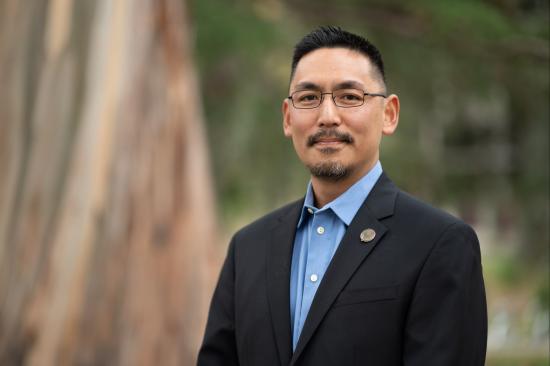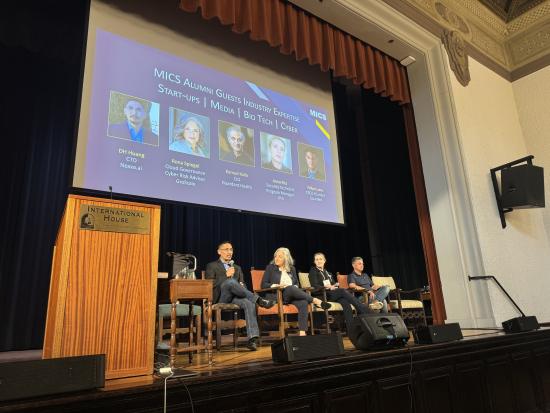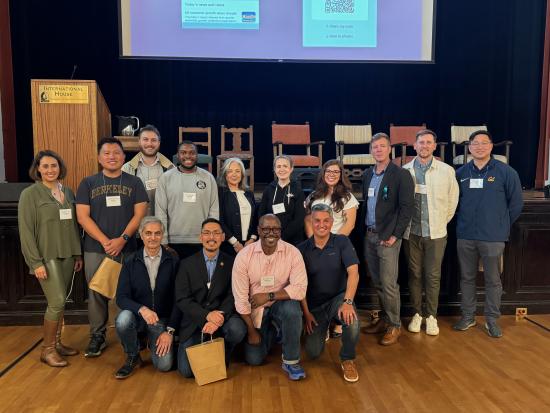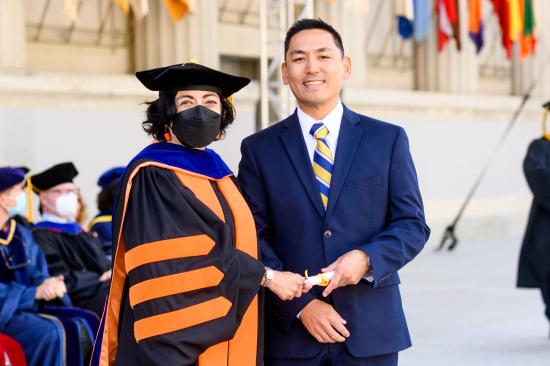David (DH) Huang graduated from the School of Information with a master’s in information and cybersecurity in 2021. He has previously worked at advertising firms Kinesso and Cadent as well as at telecommunications and network security firms. Huang graduated from DeVry University with a bachelor’s in network and communications management.
Why did you choose the I School?
Choosing the I School and the MICS program was an easy decision for me. My career has always been centered around cybersecurity, largely due to my experience in Corporate IT and working with companies that build secure technologies. The I School provided me with the perfect opportunity to delve deeper into areas of cybersecurity that I was curious about exploring further.
What was your favorite thing about the I School?
My favorite thing about the I School was definitely the opportunity to meet such interesting and motivated classmates and alumni. Initially, I was debating whether to pursue an MBA to expand my network. However, the incredible Berkeley network I have gained through the I School has been amazing. I have certainly gained some lifelong friendships.
What was your favorite class?
There were a couple of classes that topped my list, but if I had to pick one, my favorite would likely be Privacy Engineering. This class required me to flex my math (and MATLAB) muscles that had been dormant for over two decades. However, it was incredibly enjoyable to learn about the theory and applicable privacy mechanisms from Dr. Aranki. I’ve been able to apply what I learned in my previous industry of AdTech and in my current AI company. I also have to highlight how much I enjoyed all of the challenging courses available in the MICS program.
What is a cybersecurity challenge that intrigues you?
Since I’m diving deep into AI automation as part of my start-up, one cybersecurity challenge that particularly concerns me is how well new autonomous systems are protected from exploitation. AI decisions are based on probabilities and are not hard coded, and with companies enabling autonomous AI agents to have increasing control and access, there’s a notable gap in standards for adequately securing these deployments. Also, I feel the question of liability for these errant systems is still to be answered.
You just co-founded your own AI enterprise automation company! Tell us more about this. Where are you on your founder’s journey?
Yes, Nexxa.ai is our start-up where we are leveraging AI to significantly improve enterprise automation. At Nexxa, we are tackling the scaling issues that enterprises face in deploying and managing automation. Today, enterprises struggle to automate their processes quickly enough to meet business objectives due to operational overhead, lack of resources, and/or talent. We’re excited to help organizations move forward on their automation goals, whether they are traditional or AI-based.
What compels you to become an entrepreneur in this field?
Growing up in Silicon Valley, I’ve witnessed many companies in my neighborhood grow into well-known enterprises. I’ve worked at several start-ups but never founded one myself. Previously, I thought it would be enough to just join a successful start-up, but now that I’ve started one, I realize I can’t go back. I truly enjoy being an entrepreneur and working to discover what will drive my company forward each day. It’s incredibly rewarding.
How do you utilize the skills/lessons you learned at the I School in this position?
Clarence Chio’s Cyber 207 course (Applied Machine Learning for Cybersecurity) provided a wonderful foundation in machine learning and AI concepts, which has been incredibly helpful in my work today. With that background, it prepared me to dive deeper into the AI field. As a startup CTO, I spend much of my time developing software but am also regularly involved in discussions with partners and customers on theoretical aspects of AI. The skills I gained at the I School have really helped me bridge those technical and strategic conversations with confidence.
Can you share any thoughts on how your identity has shaped your path, contributing to challenges/opportunities and/or unique skills, strengths, or perspectives that you bring?
Growing up in Silicon Valley with an immigrant father who ran a printed circuit board business, I was surrounded by technology and entrepreneurship from an early age. Being in the Valley, I saw remarkable successes up close, but watching our family business struggle against overseas manufacturing also exposed me to difficult failures. These experiences taught me resilience and adaptability — qualities that continue to shape my approach to challenges and innovation.
Is there an achievement or project that you are most proud of?
Right after I got my first job out of college and started receiving paychecks, I bought a ’91 Miata that I ended up completely upgrading. I swapped out the engine, transmission, differential, and also electrical — all done without power tools (not enough cash) and relying on Clifton manuals (YouTube tutorials didn’t exist yet.) I probably owe some of my hacking mentality to that experience...
What advice would you give your past self as an I School student?
Connect with EVERYONE in the program — your Berkeley network will be more valuable than you can imagine! MATLAB is still alive and relevant. In a few years, large language models (LLMs) will fundamentally change how you work. And when you’re working on your Privacy Engineering project, buy after the upcoming crypto dip.
Anything else you’d like to share about where you are now, the I School, etc?
One of my biggest learnings in my startup journey is that a strong network can make all the difference. I’d love to connect with everyone at the I School, and I hope others take the opportunity to connect with each other as well. Building these relationships not only enriches our personal networks but also strengthens the I School community as a whole.













